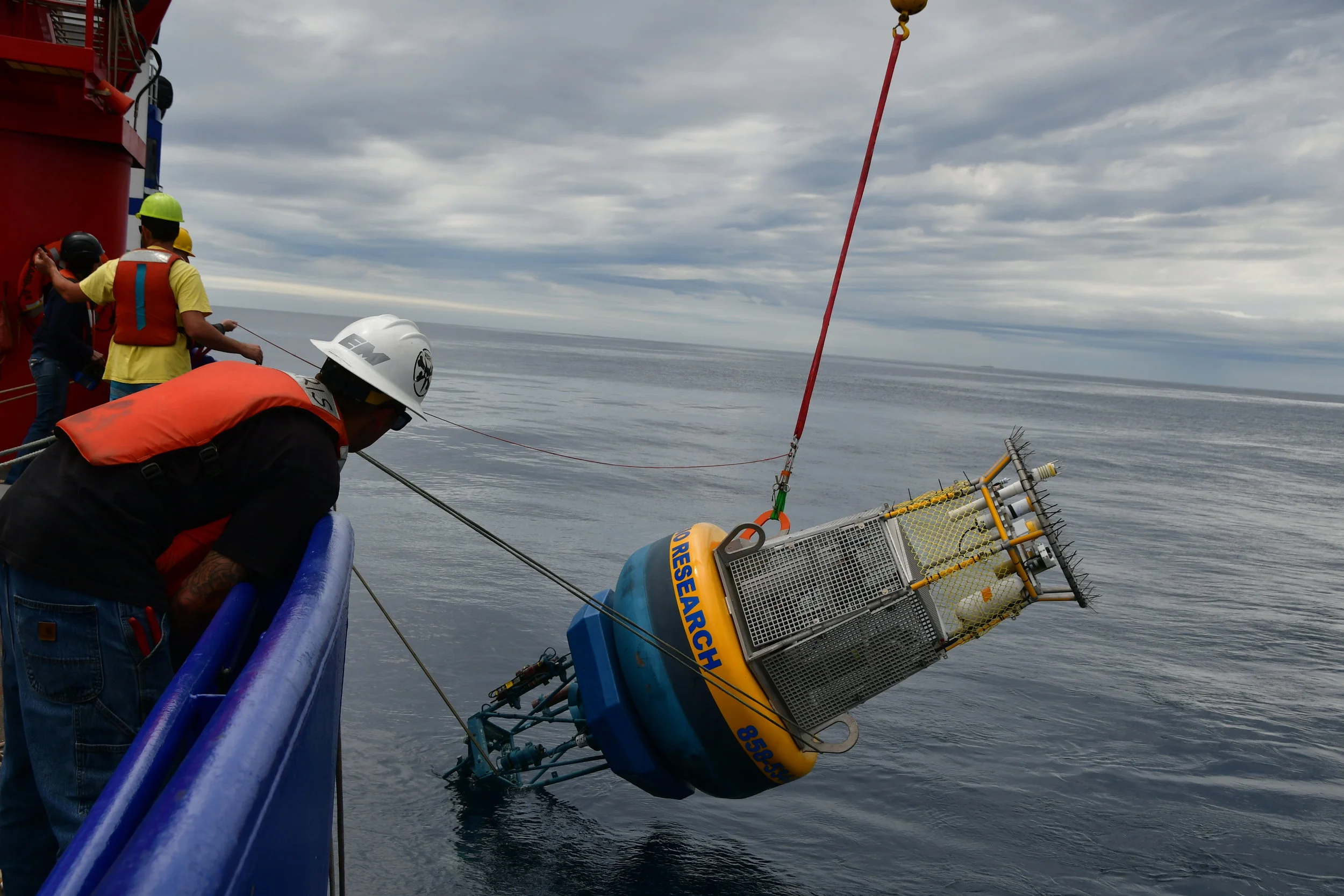SIO223
Proposal writing and
oceanographic experiment design
Instructors: Matthew Alford and Uwe Send
Credits: 4
Time: M/W 2:00-3:20
Syllabus can be found here.
Goals:
get beyond textbooks into what is not known
design an experiment that will resolve the process you want to observe
write a compelling proposal to do it
be a good shipmate while at sea
be a collegial and effective oceanographer in the US
Format:
For the first few weeks, you will research and present literature summaries of selected topics, with an emphasis on the observations and what is not known. You will then split into 2-3 groups depending on the number of students in the class, choose topics, and (with lots of coaching from me) design experiments to address what we don't know. You'll then write NSF-style proposals and submit them to the UC shiptime request for proposals. Assuming you are successful in your requests, the culmination is a 4-day cruise on R/V Sproul during the following quarter where you get to conduct your proposed research.
Topics will have a "small-scale" focus, and because of the short length of the cruise will necessarily involve work near San Diego. Possibilities will include fronts, submarine canyons, and nonlinear internal waves, but suggestions from you are also welcome. The class is PO-focused, but other disciplines are welcome as proposal writing, experiment design and collegial science are cross-discpline.
The course is designed for 2nd-year students and beyond.
Presentations and Discussions:
Each student will be responsible for choosing a topic and leading a classroom discussion for it. For the discussion, the student should:
Choose (with our assistance) a selection of papers on a topic that interests you.
Read the selected papers, identify 1-2 key articles to assign to the rest of the class, and provide a 5-10 page synthesis (complete with the reading assignments) ONE WEEK prior to the scheduled presentation. Providing this summary well in advance of the discussion allows the other students time to digest the summary and read whatever papers are assigned.
In class: present a synthesis/critique of the literature and guide the class in a discussion.
Some questions to keep in mind:
Can we trace the path of progress on this topic? How has understanding evolved, and how has that evolution changed nature of the questions being asked? How has this challenged the observations?
What aspects of theoretical expectations could be tested with the observations? Which were impossible? Why?
How robust are the results? Do we understand the uncertainties?
What questions remain? What new observations might advance understanding? What's the next step?
Proposal:
Students will use the concepts developed in class to develop ideas for an observational experiment of their choosing, culminating in the writing of an NSF-style proposal and an oral presentation of the proposed project. This effort will include identification of a tractable scientific problem, background research, development of an appropriate measurement program, and the writing of a compelling science proposal. The exercise will provide an opportunity to synthesize scientific, technical and purely practical concepts presented in class.
Because observational work is a team sport, term projects will be undertaken by groups of 3-4 students, organized according to scientific interests.
Each team must:
Identify an interesting and important problem.
Design an effective experiment to address the selected question(s) within resource constraints specified by the instructor.
Write a 15-page, NSF style proposal that presents a compelling case for the project, and submit this to the UC ship funds call for proposals.
Present a 20-minute talk to the class that describes the science and presents the observational approach.
Grades:
15% written summary, 15% oral presentation, 40% written proposal, 10% oral proposal presentation, 20% class/cruise participation.
No final.

